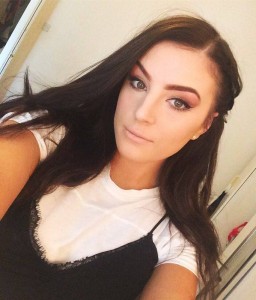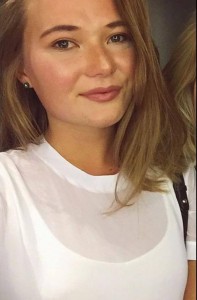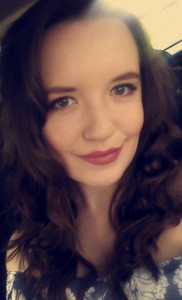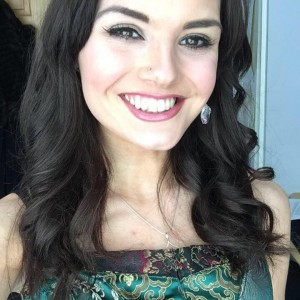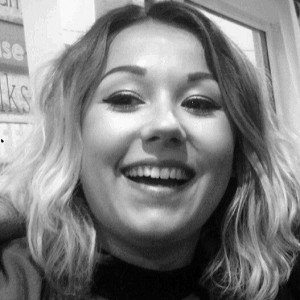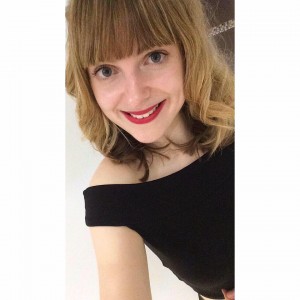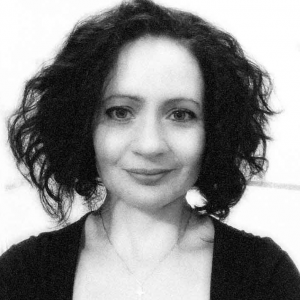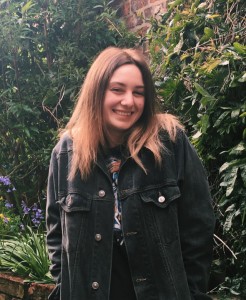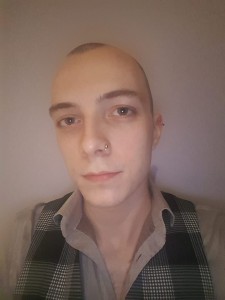“Without books, the development of civilization would have been impossible. They are engines of change (as the poet said), windows on the world and lighthouses erected in the sea of time. They are companions, teachers, magicians, bankers of the treasures of the mind. Books are humanity in print.”― Barbara W. Tuchman
An extract from Simone Frost’s “A close reading of a passage from George Orwell’s Down and Out in Paris and London, with a particular focus on the motif of food as a symbol for poverty.”
“Food is symbolic in Orwell’s novel, allowing him to voice the political issues of the time. He leaves his critique to marinade in the mind of the reader, encouraging them to digest the difficult topics he raises. However, the impact of Orwell’s message is arguably reliant on the palate of the reader.
Imagery has a powerful impact in Orwell’s novel, conceptualised through the metaphor of poverty ‘tangl[ing] you in a net of lies’. This image emphasises the confining, uncomfortable position of poverty– as a situation which is difficult to escape, as we discover at the end of Orwell’s novel. Furthermore, the humorous image of ‘crust-wiping’ exposes the seriousness of food for the characters in the novel, as something which cannot be taken for granted. The passage’s abundant repetition of ‘meals’ echoes like a rumbling stomach. The narrator constantly returns to the topic of food, or his lack of, as a symbol for his lack of status and power […]”
Interview with Simone:
Why did you choose to study English Literature?
I really enjoyed it at school. I got on with my teacher at secondary school really well, and I think that’s one of the main reasons. I like reading, especially when you read a book can realise that people actually feel the same as you do, and you can relate to the emotions in a book.
What made you study at York St John specifically?
Mainly York itself. I also like that it is quite a small university, and has a family atmosphere.
Have you had a favourite module so far?
Writing the Caribbean, that’s really good for me in particular because I’m doing research on post-colonialism for my dissertation, and that’s one of the theories that I really liked throughout my studies.
Have any of the modules that you’ve done inspired you to pursue a career that maybe you hadn’t considered before?
Definitely Lit Theory, it’s so worth doing even though it is really challenging. It’s so educational and before this module I didn’t really know much about theory whereas now every essay I write always has theory in it.
Are there any modules that you would encourage students to take?
Lit Theory, it will definitely be worth it.
Do you have any plans after university?
A Masters I think, the Contemporary Literature course here has the topics that I enjoy, like post-colonialism, and then American literature as well so it seems like a good course for me to do. I would also like to do some of the graduate schemes that they run here, which are 12 weeks long, so you can do them alongside a masters.
What would you say is the best thing about studying at YSJ?
It’s really close knit, which means all of the staff knows who you are and it is quite personal. I have good relationships with my lecturers which mean I can email them if I’m having any kind of issues. The relationships definitely benefit your study.
Ruth Holondo
An extract from Ruth Holondo’s essay, “Analyse the dramatic functions and significance of public and private spaces in one play studied”.
“William Shakespeare’s historical play Henry V expresses the roles of gender norms by illustrating the differences between the private and public roles of the sexes. […] Throughout the play, the attention to the masculine gender is referred publicly through the notion of the political feud between England and France and the language applied by Shakespeare to confer this idea. This is depicted through Henry as he deploys the use of imagery, metaphors and historicism within his language to declare the public issues to be of masculine responsibility.
Throughout the St. Crispin’s Day speech, Henry constantly reinforces masculinity by citing back the names of men that had lineage over England before him. He declares “[f]ollow your spirit, and upon this charge/Cry, ‘God for Harry! England and Saint George!” (3.1.33-34). The use of the literary device, rule of three, at the end of Henry’s speech adds emphasis to the role of masculinity within the public sphere. In his act of representing the English monarch to captivate his soldiers; there is no mention of women, although at the time that Shakespeare wrote Henry V around 1599, Elizabeth I was on the throne. “
Interview with Ruth:
Why did you choose to study English Lit?
I found English Literature more interesting than language so thought I’d choose it to do a degree in.
What has been your favourite module?
Literary Theory and Shakespeare.
Why did you choose YSJ?
I liked the look of the uni when I came to an Open Day; it seemed like a friendly place and I really like the way it was set out and how small it is, so you get to meet more people.
Have any module inspired you to think about a career that you hadn’t thought of before?
Not specifically, but I got inspired for my dissertation by Literature at Work, one of the books that we were studying I found interesting and thought that would be interesting to go further in my dissertation.
Have you got any plans after university?
I’m going to be doing teaching training in order to work at a secondary school in York.
Are there any modules that you would encourage students to take?
Gender and Sexuality, it’s interesting.
What would you say is the best thing about studying at YSJ?
The friendly atmosphere, everyone is easy to talk to. Also the tutorials are really useful.
Rhiannon Young
An extract from Rhiannon Young’s essay, “The Children’s Literature Canon: Tale as Old as Time”.
‘Words are, in my not so humble opinion, our most inexhaustible source of magic, capable of both influencing injury, and remedying it.’ (Harry Potter and The Deathly Hallows, 2011)
“In the quotation above, Albus Dumbledore, a man who cast many a spell over my childhood, reiterates my own ‘inexhaustible’ love for words: it is what has brought me here; it has kept me stable and, like the author of Constructing the Canon of Children’s Literature (2004) Anne Lundin, ‘unshaken amid the [canonical] storms about’ (p.xvii). Since embarking on my hectic, yet enjoyable, journey as a student of Literature, I have learnt a great deal about ‘words’ and their power to ‘influence’ the reading community and the ever important opinion of the critic.
What struck me about the aforementioned extract, was for the start the use of the earlier quote, which serves as a starting point, for the introduction. Within the introduction is also the mention of how the previously mentioned quote, and how it inspired the author to do Literature. It is this part alone that stands out as the author states the reason for their study and a love for words which has propelled them to study English to a degree standard. […]”
Interview with Rhiannon:
Why did you choose to study English Literature?
My mum is an editor and author of children’s books so I kind of got it from her and I seem to have always put more energy into English.
What made you study at York St John specifically?
I really like York as a city, but also the fact that we don’t have exams because I’m bad at timed assignments so I preferred the coursework element.
Have you had a favourite module so far?
Yeah, canonicity it’s called ‘Making and Breaking the Canon’ which is in third year with Sarah Lawson-Welch but I think they may be changing it to first year. It’s looking at canonical books like the staple pieces that you already study and challenging them, writing back, that sort of thing.
Have any of the modules that you’ve done inspired you to pursue a career that maybe you hadn’t considered before?
Not a career but the ‘Cultures of Childhood’ module inspired my dissertation and I think if I was to do a Masters I would be interested in doing it in children’s lit. I’m writing about the symbolism of food in children’s lit for example, ‘The Lion the Witch and the Wardrobe, Willy Wonka, and the Hunger Games.
Are there any modules that you would encourage students to take?
Obviously it depends on the person’s preference but I really liked Gothic and Horror in my second year. Also a module that I’m doing now, ‘American 20th Century Lit’ that’s really interesting and all the texts link together.
Do you have any plans after university?
Not set plans yet, I want to get a year of experience to enhance my CV and then I think I’ll do a Masters. But if not I think I want to do editing and be an editor.
What would you say is the best thing about studying at YSJ?
As it’s quite a small uni, and students really benefit from one on one tutor time because of that. For every assignment I do now I book at least two tutorials with whoever is doing the module so I think they get to know students individually whereas with bigger universities I don’t think you’d get the same sort of experience.
An extract from Niamh Meehan’s “A close reading of The Wasteland by T. S. Eliot”.
“The Wasteland captures the zeitgeist of life post WWI. The poem, like the reality it represents, is imbued with the nihilistic undertones reflective of the philosophies of those who have experienced the face of oblivion through war. The structure of Eliot’s polysemic exposition of post war life resists identification and its sporadic structure imitates the faltering progression of humanity towards healing. The opacity of the content and the amorphous settings produce a deliberate vacuity which resists coherence.
The motifs of death and decay prevalent throughout the opening of the extract highlight that the physical realm of existence has been destabilised through trauma and therefore the beliefs that have served society in the past will have to be reinvented to cultivate a harmonious future. The church is an artefact which embodies the cultural, social and religious identity of humans. Its degenerating position amongst the mountains denotes the alienation of humanity from it’s surroundings […]”
Interview with Niamh:
Why did you choose to do English Lit as a joint honours alongside Creative Writing?
Initially I just applied for English Literature and then I thought that some of the creative writing modules sounded really interesting regarding how they looked at different writing styles and techniques. As well as analyzing literature I wanted to look at how books were put together in that way as well.
What has been your favourite module so far?
I’d say my favourite module so far has been ‘Experimental Writing’ or ‘Creative Non-Fiction’. It’s so hard because I love all the modules that I’ve done in different ways but ‘Experimental Writing’ was introduced for third year and it’s all about the avant-garde genre of writing and it was really interesting because it totally changed my perspective on writing and I really enjoyed it because of that. It was really challenging though […] but it made me think about writing in a new way.
Why did you choose YSJ?
I’m from Northern Ireland and I decided that I really wanted to go somewhere different and I got an offer from here and decided to come over and see it and loved the city of York, loved the university itself and so decided from there.
Have any modules inspired you to pursue a career that you hadn’t thought of before?
I’d say that studying Gender and Sexuality as well as studying literary theory definitely made me consider a career in academia and going further into research and stuff and do a Masters and PhD and go down that route.
Are there any modules that you would encourage students to take?
For English Literature (rather than Creative) I really enjoyed American Literature in both the 19th and 20th Century because there are two chances to study it. I really enjoy them and also 20th Century writing in general because when you study American Lit or 20thCentury writing you get to look at literature from all around the world so those modules are really inclusive that way so you’re not just studying writing from writers that you’ve heard of.
Do you have any plans after university?
I think I’m going to further my creative and professional development and apply for as many work internships and placements and eventually a Masters.
What would you say is the best thing about studying at YSJ?
I found the teachers to be really inspiring and they make the content very interesting and they’re also there to support you throughout your assessments and studying. The modules encourage you to think about employability after university. I also think York as a scene for literature and for creative and artistic things is a really good thing and just a lovely friendly town in general.
Lorna Kerr
An extract from Lorna Kerr’s essay, “Critically explore the extent to which any two plays studied represent women as marginalised or displaced”.
“Both As You Like It’s Rosalind, The Winter’s Tale’s Hermione and her daughter Perdita are displaced, banished, and disrupted from the equilibrium of their courtly lives. These removals, all wrongful, all catalysed by male tyranny and unjust jealousy, superficially suggest that female subjugation is prevalent within Shakespeare’s plays. However, although marginalised by oppressive male rulers within the plays – Duke Frederick and King Leontes respectively [ – ] Hermione, Paulina, Perdita and Rosalind command a clarity of voice within the plays which is striking in its eloquence and coherency.
Rosalind acknowledges marriage as a transaction, verbally acknowledging marriage as a market and stating “[To Duke Senior] To you I give myself, for I am yours. [To Orlando] To you I give myself, for I am yours” (5.4.114-115). Rosalind’s awareness of the conventions of the patriarchy grants her the agency to partake in her own commodification, giving herself to a husband of her own choice before being given. The marriage of Rosalind and Orlando is one that is satisfactory in that Rosalind is never relegated to passivity or enforced silence. Although, Shakespeare concedes in the final lines of As You Like It, “It is not the fashion to see the lady the Epilogue” (Epilogue.1-2), the metatheatrical address is spoken by Rosalind despite traditional conventions of Elizabethan theatre.”
Interview with Lorna:
Why did you choose to study English Literature?
It was always one of the subjects that I was best at throughout school. I hated other subjects like maths and science, and I just really liked English. I liked everything about it; I liked writing and books, so I thought it made sense to do something that I enjoyed.
Was there a reason you chose York St John specifically?
I thought it had a nice atmosphere. I did look around University of York as well, and I thought this university seemed a lot friendlier and more approachable.
Have you had a favourite module so far?
I really liked Cultures of Childhood, and I liked Gothic and Horror as well.
Have any modules that you’ve done inspired you to pursue a career that maybe you hadn’t considered before?
I know it is a Creative Writing module but Screen Writing made me think about writing as a career and it’s something that I hadn’t considered pursuing before.
Are there any modules that you would encourage students to take?
I think it really depends on your personal interests, but I’m really glad I chose Cultures of Childhood. One that I wished I had taken was Lit Theory though. If we are studying something there always seems to be someone who says that they covered it in Lit Theory before, so it seems useful. I do Gender and Sexualities now in third year would definitely recommend that one.
Do you have any plans after university?
I work in York Art Gallery at the moment, so I’ll probably stay there for the moment until I decide on any concrete plans.
What would you say is the best thing about studying at YSJ?
The sense of community because it is so small. You tend to know a lot of people.
An extract from Izzy Donnison’s essay, “To what extent does Shakespeare’s Antony and Cleopatra and Aphra Behn’s The Rover challenge a patriarchal narrative which suggests that women do not have any influence in society as a whole?”.
“William Shakespeare’s Antony and Cleopatra and Aphra Behn’s The Rover both challenge a patriarchal narrative through presenting strong female protagonists who destabilise 17th century gender norms […]. Shakespeare and Behn construct complex female characters who invert traditionally masculine tropes through their sexually voracious desires, aggression, dominance and ability to manipulate men.
Cleopatra and Angellica Bianca influence society through the transgression of their gender by the capitalisation of their constituted femininity. Cleopatra uses her immense and goddess-like beauty to dominate men and generate power over their masculinity. […] It is suggested that Cleopatra’s sexuality is so voracious that she enslaves men through their gender idealised trope of sexual insatiability; she even ‘made great Caesar lay his sword to bed’ (2.2.238). Cleopatra uses her sexuality to dominate the men in the play who epitomise masculinity and she makes their soldiers ‘women’s men’ (3.7.69). […] Like Cleopatra, Angellica also capitalises on her beauty as she […] feeds off men both sexually and economically as ‘their wonder feeds [her] vanity, and he that wishes but to buy, gives [her] more pride than he that gives [her] price can make pleasure’ (2.1.132-134). Angellica recognises her place as a woman in a 17th century Petrarchan social structure with no wealth, family or chastity and so she is liberally ‘resolved that nothing but gold shall charm [her] heart’ (2.1.149-150). Angellica’s narrative influences socially through her brazen exploration into the sexual double standards between men who are rovers and yet seemingly glorified as masculine landmarks, and sexually active women who are remarked as whores and prostitutes.”
Interview with Izzy:
Why did you choose to study English Literature?
I chose to study English Literature because both art and history did not seem like successful paths for me- these were the other subjects that I had taken at A-Level.
Of course this was not the only reason; I have always been an avid reader and my passion for books has been instilled in me since I was a child.
Why did you choose York St. John specifically?
I chose to study at York St John because it is a lovely city and campus. I feel very much safer and at home in York and I am comfortable finding my way around unlike many other universities and cities.
Do you have any favourite modules?
My favourite modules have been the Imaginary Worlds and Shakespeare: Perspectives. I enjoyed the sci-fi module because it introduced me to a new form of fiction which transgressed gender roles on different levels. The Shakespeare perspectives module was also fantastic because of the enthusiasm shown by the lecturers and the fun themes and activities led in the seminars- of course the trip to Stratford upon Avon was also incredible.
Have any modules inspired your dissertation or perhaps a career path you hadn’t thought of before?
The Imaginary Worlds module has hugely impacted me and led me to write a science fiction dissertation. The last thing I wanted to do was have to write an 8000 word dissertation which bored the hell out of me and with science fiction nothing can be boring.. This last year I have decided to apply for a teaching PGCE also at York St John and I would say that my experience with my dissertation supervisor and the support she has given me has encouraged me to just go for it no matter what people say. I sat myself down and asked myself what I wanted to achieve in my life and teaching (despite the fact I had written it off a long time ago) actually happened to match up with everything I wanted.
What modules would you recommend?
I would definitely recommend the Imaginary Worlds module and Shakespeare Perspectives.
Do you have any plans after uni?
I hopefully plan to continue on to a PGCE course teaching upper primary.
What is the best thing about YSJ?
The best thing about YSJ is that it’s a wonderful campus. It is so small and familiar and that helped me to be a more confident person because I was comfortable in my surroundings.
Emma Cawthorn
An extract from Emma Cawthorn’s essay, “Analyse the role of religion in the work of any two writers from the course”.
“In both Night, and Ted Hughes’ poems Crow’s First Lesson, and Crow Blacker than Ever, the loss of faith contributes to the emergence of existential identity and an unstable relationship between man and God. […] I will also argue how although both Crow and Night explore an ineffectual and powerless God, the effect on the individual differs.
In Night this is directly caused by the inhumane treatment of the Holocaust victims and the cruel environment which breeds pain and suffering… The Holocaust can clearly be viewed as an experience which, in existentialist terms, describes a “theft of the freedom to determine and preserve the self” (Christianson p.264). This is evident through Eliezer’s isolation as he notes “I am terribly alone in a world without God… I was nothing but ashes now”, (Wiesel 2008 p.68). Hughes and Wiesel both explore how this lack of humanity and suffering is linked to the ineffectual power of God, which consequently fuels this loss of faith, creating an existential angst and a disunified relationship between man and God. Hughes explores how this rejection of God exposes the callousness of man. This is illuminated in Crow’s First Lesson through the powerlessness of God who is unable to exert influence particularly over Crow’s language, which is evident when God “trie[s] to teach Crow how to talk” (Hughes line 1)… [He also] reconstructs the biblical creation, instead depicting it as chaotic and horrifying, as man and woman are not created by God, but retched out of Crow, illuminating how Crow symbolises the sinful traits of the human character and the nightmarish vision of modern man.
It can therefore be inferred that both Night and Hughes’ poems Crow’s First Lesson and Crow Blacker Than Ever are comparable through the fragmented relationship between man and God, as his ineffectual power results in the development of existential identity.”
Interview with Emma:
Why did you choose to study English Literature?
I really enjoyed studying it at A Level so I wanted to explore it a bit more. It did take me a while to figure out what I wanted to do because I was considering sociology but I realised that I preferred reading; I think I made the right choice!
Was there a reason that you chose York St. John specifically?
I wanted to stay in York and I really liked this campus, it seemed really friendly. I also liked the course and what it offers for you to study.
Have you had a favourite module so far?
I liked Lit Theory, which was really good. Third year as a whole is particularly good, for example, American Literature and also Gender and Sexualities.
Have any of the modules that you’ve done inspired you to pursue a career that maybe you hadn’t considered before?
I’ve recently become more interested in mental health so I’m interested in pursuing something in that field. In the module Gothic and Horror, you explore mental illness a bit and it’s really interesting.
Are there any modules that you would encourage students to take?
Lit Theory is a really useful one because it can help with your essay writing, and knowing about different theories definitely strengthens your argument. If you’re into theory, it is definitely a good one to consider.
Do you have any plans after university?
No solid plans yet, but I’m considering quite a few options. I mentioned something to do with mental health earlier and I am also considering a career as a Teaching Assistant.
What would you say is the best thing about studying at YSJ?
The atmosphere; everyone is really friendly and supportive towards you.
An extract from Claire Crocker’s essay, “‘This Submarine Home’ The Sea and the Fractured Self in Charlotte Brontë’s Villette”.
“It is easy to concentrate on parts of Villette in a Structural way as I have chosen to do so far. This does limit the text, however, as Brontë’s use of linguistic device is only a part of the narrative as a whole. In Language of Fiction, David Lodge suggests that an author is worthy to be defined as literary if the language of the novel ‘has its own internal logic and beauty’. In his view literary language should not ‘confuse’, ‘contradict’ or contain ‘internal consistencies’ (2001, p.73). It is interesting to note here that Brontë is guilty of both forms of authorship within Villette, or rather she allows Lucy to confuse and contradict. Josephine Guy (1996, p. 20) questions whether we can in fact measure Lodges’ criteria at all. Guy’s argument against Lodge and structuralism is that we cannot know which linguistic devices are important, or how objective we are when we examine them as we approach a text with our own pre-determined views.”
Interview with Claire:
What course are you studying?
I’m doing joint honours Creative Writing and English Literature. I find that you can balance it how you want to balance it; for the dissertation I’m doing Creative Writing because I feel stronger on that side of things, so I’ve been able to balance it the way I’ve wanted to.
Why did you choose to study English Literature?
It gives me a good grounding for my Creative Writing. I wasn’t very good at it to begin with, I used to go to a university in the south, and whilst I was there my marks were quite low. Throughout being at York St John, though, they’ve gradually climbed and I’ve found that the Literature side of my degree has really helped with my Creative Writing, and vice versa. I also have an interest in books anyway so to study them feels natural to me.
Have you always had an interest in Creative Writing/Literature?
Yes, ever since I was about fourteen years old. I was permanently at the library reading quite complicated books, things like Angela Carter, which is quite heavy stuff for fourteen years old, but I never really knew what to do with it. I was also writing things for people at school and I would pass my stories around, but I still didn’t know what to do, so I got a few jobs and then suddenly thought one day that I wanted to study Creative Writing and Literature, so I did.
What is your main interest in Creative Writing?
I quite like experimental writing at the moment, and I quite like writing about the act of writing, weirdly, which is why I particularly enjoyed Villette; I think it touches upon the act of writing. So, I like experimental stuff where you’re revealing the act of writing…sort of Postmodern. I’m a very strange writer!
Have you had a favourite module?
It’s a close call between Experimental Writing (Creative Writing module) and Nineteenth Century Writing (English Literature module). I knew I was going to like Experimental Writing because I’d already started researching that for my dissertation, and when I realised they were running a course on it, of course I chose it.
What made you choose York St. John specifically?
To be truthful, it’s the university that would take me straight on to the second year, as I completed my first year at the University of Portsmouth. York St. John looked at samples of my work and then took me straight into second year, and honestly it was the best decision I ever made applying to this university. In terms of improving my grades, they’ve definitely done a great job. I’m really impressed with the teaching, and the way that the modules interlink with each other. The ways the modules are designed and the way they link into each other is really useful and really well done. I think it’s especially useful when you’re doing joint honours because you can see links between the English Literature side and the Creative Writing side.
Have any modules influenced your dissertation or made you think of a career you hadn’t considered before?
I want to do my masters eventually, and I think it’ll be a choice between either Nineteenth Century literature or Experimental Writing, so I think both of those modules have influenced me. I’ll always write, but I’m not sure how that will pan out career wise. The Experimental Writing module has been invaluable for my dissertation because whilst I was designing it, I was floundering a bit in trying to find novels that would suit this type of writing, and that module really helped at the tutors could recommend different types of novels that would fit such as House of Leaves.
What would you say is the best thing about YSJ?
The teaching, the way the courses are designed, and the fact you can get tutorials easily to help with your marks and get advice. The facilities are good; the library is well stocked and easy to use. I like the fact it’s small because you get a more personal experience, I wouldn’t want to go to a big university, it just wouldn’t work for me; it’s that family feeling in the university that I really like. Since coming here, this is the place that has really helped me with my marks and the tutoring that I have had here has changed my writing significantly. The individual help I’ve received from tutors has really brought my writing on.
Are there many opportunities to publish your creative writing?
Yes, I’ve just recently had a piece put in the Beyond the Walls anthology. There are plenty of opportunities and you can get involved as much as you want to. Being an older student, I do find it a bit difficult to get involved but I’m always welcomed, I always receive emails to events that are going on, and I’m as welcome as any other student. They’ve just gone Station Stories for the York Literature Festival that I was involved in; they changed one of the halls into a station and I had one of my poems projected onto a wall. Although I haven’t participated that much, my work has still been put out there so that’s fantastic. If you really put your all into it, you could definitely get a lot of your work out there.
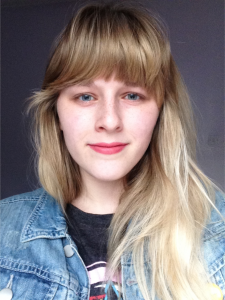
Alex Smith
An extract from Alex Smith’s essay, “Control Yourself, Lucy Snowe: Women and Self-control in Charlotte Brontë’s Villette.”
“The character Lucy Snowe, in Brontë’s Villette, makes it clear that self-control in the face of suffering is integral to female existence through her treatment of other women, but her own constructed persona of calmness and passivity is unreliable, betraying her own lack of self-control.
In Villette, the six-year-old Polly Home is presented as a figure of ideal womanhood. She embodies characteristics of the ‘ideal’ Victorian woman, in her love for her father and her doting on Graham Bretton – appropriating his mother’s term for him, ‘my dear boy!’ (Brontë, 2008, p.24). She is frequently characterised as ‘unchildlike’ (p.9), and is seen by Lucy as ‘demure’ (p.15) and ‘womanly’ (p.16). Ideal womanhood and suffering are brought together within the character of Polly.
Lucy’s comforting of Polly reveals two opposing natures: ‘she was chill, I warmed her in my arms’ (Brontë, 2008, p.34). The act is maternal, but the juxtaposition between ‘chill’ and ‘warm’ also applies to Lucy herself, in the coolness of her narrative persona and the warmth that she does not want to acknowledge […]”
Interview with Alex:
Why did you choose to study English Literature?
I chose to study English Literature because I’ve always enjoyed reading, after doing my A Level in Literature I just felt like I wanted to keep getting better at it.
What made you want to study at York St. John?
I wanted to study at York St John because I wanted to study in York, as I love the city. There was such a friendly atmosphere on the open day I attended and I also liked the structure of the course, particularly as it was coursework-heavy and it’s those types of assignments I tend to take more pleasure in doing.
Do you have any favourite modules?
My favourite module would have to be Shakespeare: Perspectives from last semester, mainly due to the genuine enthusiasm of the two lecturers running it, but also because of the different learning opportunities it offered – a visit to the Birthplace Trust and the Royal Shakespeare Company itself, as well as being able to ask questions of visiting Shakespearean actors.
Have any modules influenced your dissertation or perhaps made you think of a career you hadn’t considered before?
The Cultures of Childhood module from my second year has definitely influenced my dissertation, and to an extent my career choices. It made me realise how much I loved studying children’s literature and I’ve continued to do that in my dissertation. I originally wanted to become a primary school teacher, so I thought taking the module would help me do that, but I’ve since been considering going on to do a Masters degree with a focus on children’s literature.
What modules would you recommend students take?
Aside from the two modules I’ve already mentioned, I’d definitely recommend the American Literature in the Twentieth Century module I’m currently studying. We’ve already studied literature from Hemingway to the Beat Generation, and I’ve recently enjoyed a lecture on Vietnam writing which was especially interesting, so there’s a real range of literature available.
What is the best thing about YSJ?
I think the best thing about YSJ is the lively atmosphere on campus, it’s much more compact than some other universities, there are always people around and you’re never too far away from where you want to go. I really like the familiarity that comes with it.
An extract from Anastasia Thomas’ essay, “Discuss how any two writers from the course engage with politics and/or offer a form of social critique. (E.M. Forster’s A Passage to India and Mulk Raj Anand’s Untouchable.)”
“Both E.M. Forster’s A Passage to India and Mulk Raj Anand’s Untouchable engage with the colonial discourse of the interwar period of the twentieth century. Being set in pre-independence India, the novels explore similar themes regarding the social issues brought about as a result of colonisation and the occupation of the British Raj.
Anand’s main concern with the individuals in the lower castes of Indian society, the marginalised, oppressed and rejected, explores how India’s internal colonialism was preventing the country’s progression into a modern and civil society. Through Bakha’s attempt at escape through European dressing, and the depiction of his abhorrent living conditions and abuse he faces as a result of his societal status, the sufferings of the outcaste are brought to attention in order to humanise those of the lower class and call for radical change […]”
Interview with Anastasia:
Why did you choose to study English Literature?
I’ve always had a passion for literature and reading. English is one of the only subjects throughout my education that I have always enjoyed, engaged with and was successful in. I chose a degree English Literature as it would let me continue to study something that I was enthusiastic about, and also would open up a wide range of career opportunities.
What made you want to study at York St. John specifically?
As I study a joint-honours degree with English Language, I like how flexible the course is, and I have always had a variety of options when it came to module selection. The location of the campus is ideal as well; as a university in the centre of such a great city, I knew when I visited York St. John on the open day that it was somewhere that I could see myself living for three years
Have you had a favourite module so far? Why?
I’m really interested in contemporary literature so The American Literature in the Twentieth Century module that I have taken in the second semester of this year has been a highlight. I’ve been able to engage with such a wide range of texts, some of which I wouldn’t have thought to pick up before.
Have any of the modules that you’ve done inspires you to pursue a career you hadn’t considered before? (Or influenced your dissertation)
The American Literature, Space and Place module that I took in second year definitely influenced my dissertation. It allowed me to revisit The Great Gatsby, one of my favourite novels, and look at the context, themes and issues underpinning the text in much more depth than I had done before. I chose to write on it for the research project, and it inspired the final ideas of my dissertation as I ended up writing on F. Scott Fitzgerald texts and how they document the rapid social change of the 1920s.
Are there any modules that you would encourage students to take?
Other than the American Literature in the Twentieth Century and the American Literature, Space and Place modules that I have already mentioned that I would obviously recommend, Literature at Work is a great module. Revolving around careers in Literature, it really gets you thinking about the possibilities of where you can go after university. It’s a module geared towards helping you to understand which sectors you can apply your degree too, and some of the guest speakers that they have on the module are so interesting and inspiring.
Do you have any plans for after uni?
At the moment, I’m exploring what area of work I want to get into. I’m fortunate that I really do have a number of career options after I finish my degree – I’m particularly interested in a placement or graduate scheme in publishing.
What would you say is the best thing about YSJ?
It’s not an intimidating environment; both the staff and students couldn’t be more helpful, and the lifestyle of university is really sociable. Moving to uni can be daunting, but I think that because York is such a nice city, and YSJ as a whole is really welcoming, it’s easy to settle down here and meet new people.
Holly Pawlitta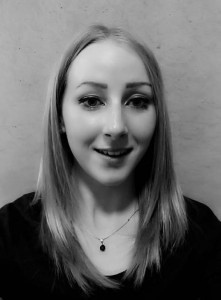
An extract from Holly Pawlitta’s essay, “Critically explore the role of intertextuality in canon formation and/or challenges to the canon”.
Patience Agbabi [in her 2014 anthology; Telling Tales] cleverly uses the devise of intertextuality in different ways, thereby reforming the original piece of literature in order to create a certain tone and encourage the readers to adapt their perspective on the old.
Literary theorist, Harold Bloom argued that there is a psychological anxiety experienced by poets who revise another writers’ work, or are heavily influenced by a particular writers’ style. […] By applying Blooms theory of intertextuality to the poetry of Agbabi, it can be concluded that Agbabi has revision of Chaucer’s work and her “creative correction” (Bloom, p.30, 1973) has only has only created a “misinterpretation” (Bloom, p.30, 1973) in order to make space for herself in the world of the canonical classics. […] Agbabi’s laughter inducing and witty ‘Problem Page’, uses a different type of intertextuality, in comparison to Telling Tales. Agbabi’s agony aunt alter ego (Dear Patience) mocks the famous canonical writers William Shakespeare and John Milton, by condescendingly replying to their (supposed) insecurities, […] in [an] article for The Guardian Carol Rumens, argues; “Agbabi characteristically makes poetry an opportunity for conversation with the past, not swamping it but setting new lexical terms.” (Rumens, 2016).
Both of Agbabi’s uses of intertextuality are valuable in the process of challenging the canon. Whether a particular piece of canonical work is being challenged through the intertextual form of parody, or simply viewed through intertextuality in a revisionary method, we, as readers are forced to look back and question our knowledge and perspective on canonical literature… The canon acts as a form of preservation whereas intertextuality can act as a form of evaluation.
Interview with Holly:
Why did you choose to study English Literature?
It was the only thing that gave me a lot of opportunities when I was at school. I studied it at both GCSE and A Level, and it was the only thing that I felt really gave me any sort of skill set. I originally did consider something else but I didn’t want to commit to one job, and Literature is a lot more flexible and gives you more skills that are applicable to quite a lot of jobs and employment.
What has been your favourite module throughout university?
I took a module this year (third) called Canonicity: Making and Breaking the Canon. That’s all about canonical literature and the ‘best literature’ and looking at why it’s considered the best and challenging it. We also looked at rewriting the classics.
Why did you choose York St. John specifically?
They offer a study abroad program to Poland and I really wanted to go to that specific university in Poland. All the other universities I looked at didn’t offer anything similar, and I really like York.
Have any modules inspired you to think about a career that you hadn’t considered before?
I’m still thinking about what I want to do and, being in the last year, it’s complicated because I really want to focus on my work. I did, however, take American Literature last year, and we got to look at Native American Literature and that’s what I’m writing my dissertation on now. I wouldn’t have really considered writing on it if I didn’t do that module.
Are there any modules that you would encourage students to take?
Writing the Caribbean is really interesting, it’s literature from a different standpoint and I really enjoy that.
What is the best thing about studying at YSJ?
The location, I really like York, but also the modules and what you can study. A lot of it is contemporary and you don’t always get that at other universities. An example would be Writing the Caribbean, I haven’t seen that on any other syllabus at another university.
An extract from Callum Cooney’s essay, “’Canonicity – membership of a canon or The Canon – is inevitably based on one of two things: beauty (aesthetics) or power (influence)’. Have you found this to be the case?”
“As the purportedly longest surviving Anglo-Saxon poem, Beowulf’s canonical status is enmeshed in notions of historiography, national and ethnic identity, philology, aestheticism, and mainstream culture. By considering an abridged history of the poem’scanonization, and elucidating some critical arguments regarding the poem’s aesthetic and influence, I will evaluate the grounds upon which Beowulf has been considered a canonical text.
[T]he poem’s aesthetic was [initially] overlooked in light of its historiographical and philological influence.[…] In this context, wherein Beowulf is considered a strictly historical document, the poem’s aesthetic flourishes and phantasmagorical monsters are neutered (if not denounced), the literary value of the work is nullified, and its membership to the Western Canon is granted based on its philological, historiographic, and cultural significance. […]
The interwoven cultural, ethnic and religious aspects of Beowulf invite readers to make a decision as to whether they interpret Beowulf as ultimately flawed or heroic. At this intersection, the aesthetics and influence of Beowulf begin to merge; if the historiographic and philological influence of the poem could be removed, then the aesthetics would surely perish in the process. This heroic-elegiac poem is both a record of antiquity, a lament for the heroic age, and a significant literary feat.”
Interview with Callum:
Why did you choose to study English Literature?
I originally intended to study Creative Writing exclusively but opted instead for a joint honors degree in Creative Writing & English Literature; I took to heart the maxim ‘being a good reader will make you a better writer’.
What made you want to study at York St. John specifically?
York St. John’s scenic campus, situated close to the city center, was a major factor in my choice to study there. Moreover, the staff I have studied under all take a very proactive and personal approach to teaching and strive to accommodate the individual preferences of each student. York St. John University is a community – not merely an academic institution.
Have you had a favourite module so far? Why?
The ‘Imaginary Worlds: Researching Science Fiction’ module which I took during my second year was my favourite by far. Liesl introduced us to a varied selection of speculative fiction by a myriad of different authors, and also facilitated discussions which broached topics such as philosophy, theology, sociology and psychology. For example, I wrote a fictocritical essay on Ursula K. Le Guin’s ‘The Left Hand of Darkness’ which focused heavily on Taoism and eastern philosophy.
Have any of the modules that you’ve done inspires you to pursue a career you hadn’t considered before? (Or perhaps influenced your dissertation)
The aforementioned ‘Imaginary Worlds’ module inspired me to consider writing fictocritical essays once I finish my studies. I once considered the English Literature half of my joint honors degree to be supplementary to the Creative Writing half, however, by introducing me to the concept of fictocrital essay, Liesl brought me to the realization that academic essays and creative fiction can be interwoven in interesting ways.
Are there any modules that you would encourage students to take?
I would encourage students to take modules which cover topics they are unfamiliar with. Consistently challenge yourself whilst at university. If you are comfortable writing essays on romantic novels, then perhaps take a module which includes macabre poetry.
Do you have any plans for after uni?
After university, I will continue to submit my work to writing competitions and literary magazines. I am also considering a masters degree in Philosophy in order to add new depth to my writing. But don’t quote me on that. Oh, wait…
What would you say is the best thing about YSJ?
The best thing about York St. John is how the staff provide students a forum to voice their opinions on the university’s management and curricula. Every student has a voice, and no opinions are suppressed. I’m also very thankful that the university collaborates with the York Literary Festival, and provides opportunities for writing in situ – I loved my visits to Whitby immensely, and enjoyed hearing students perform their work in the evening!
Interviews conducted by Eleanor Squires and Rebecca Formstone.
Essay extracts edited by Elisha Wise, Joseph Wright, Eleanor Squires, Steven Atherton, and Daniel Gouldthorpe.
